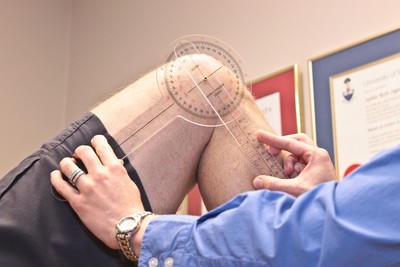What is Physiotherapy and what can it do for me?
Physiotherapists are experts on movement and function. We are university-trained and have advanced understanding of how the body moves, what keeps it from moving and how to restore mobility. Think of Physiotherapists as your body mechanics: we keep you moving for life.
Your Physiotherapist at Active Living Physiotherapy is skilled at assessing and treating the following conditions:
- sports injuries
- neck and back pain
- sprains and strains
- pre- and post-natal problems and other women’s health conditions
- arthritis
- osteoporosis
- post-operative (after surgery)
- post-joint replacement surgery
- repetitive strain injuries/overuse injuries
- traumatic injuries
- sports injuries
The Active Living Physio Approach
To ensure your time in therapy and at home is used effectively to reach your goals, your therapist will:
- assess your symptoms
- access any relevant imaging (X-ray, MRI, etc.) results and review with you
- diagnose your condition
- devise a treatment plan, write it down and give you timelines
- along with you, establish meaningful goals you want to achieve
- treat your condition
- send you concise instructions on any home exercises (including photos and videos)
- continually evaluate the effect of treatment on your condition and adjust the treatment plan if necessary
- help you to manage your condition to prevent re-occurrence of problems
- communicate with any other health professionals involved with your condition, such as your doctor, to ensure a united approach to achieving your goals
At Active Living Physiotherapy our therapists practice evidence-based physio techniques; this means we keep up to date with the latest in medical and sports science research to help us select treatments that have been scientifically proven to help your condition.
Your Physiotherapist may use the following to treat your condition:
- education so you understand your condition, advice on posture, exercise, workplace and lifestyle habits
- exercise therapy (to be done at home, in the clinic, or at a location of your choice)
- manual therapy (this means the Physiotherapist using their hands to loosen a tight joint or muscle, or using hands-on techniques to guide your movement patterns)
- dry needling techniques
- ultrasound or electrotherapy - modalities used to speed up the healing or to recruit certain muscles
- taping - using either sports tape or “kinesio tape”- often used to protect an injured area, recruit muscles, or provide postural cues
Specialty Physiotherapy Services
In addition to your "average" Physio visit- we also have several areas of special interest!
(Click on the photos to learn more!)
Active Living Physio- Hilchey & Dogwood
801 Hilchey Rd, Unit #102Campbell River, BC
V9H 1T8 View Staff & Treatments
Active Living Physio- Larwood Plaza
2380 South Island Highway, Unit #2Campbell River, BC
V9W 1C3 View Staff & Treatments










